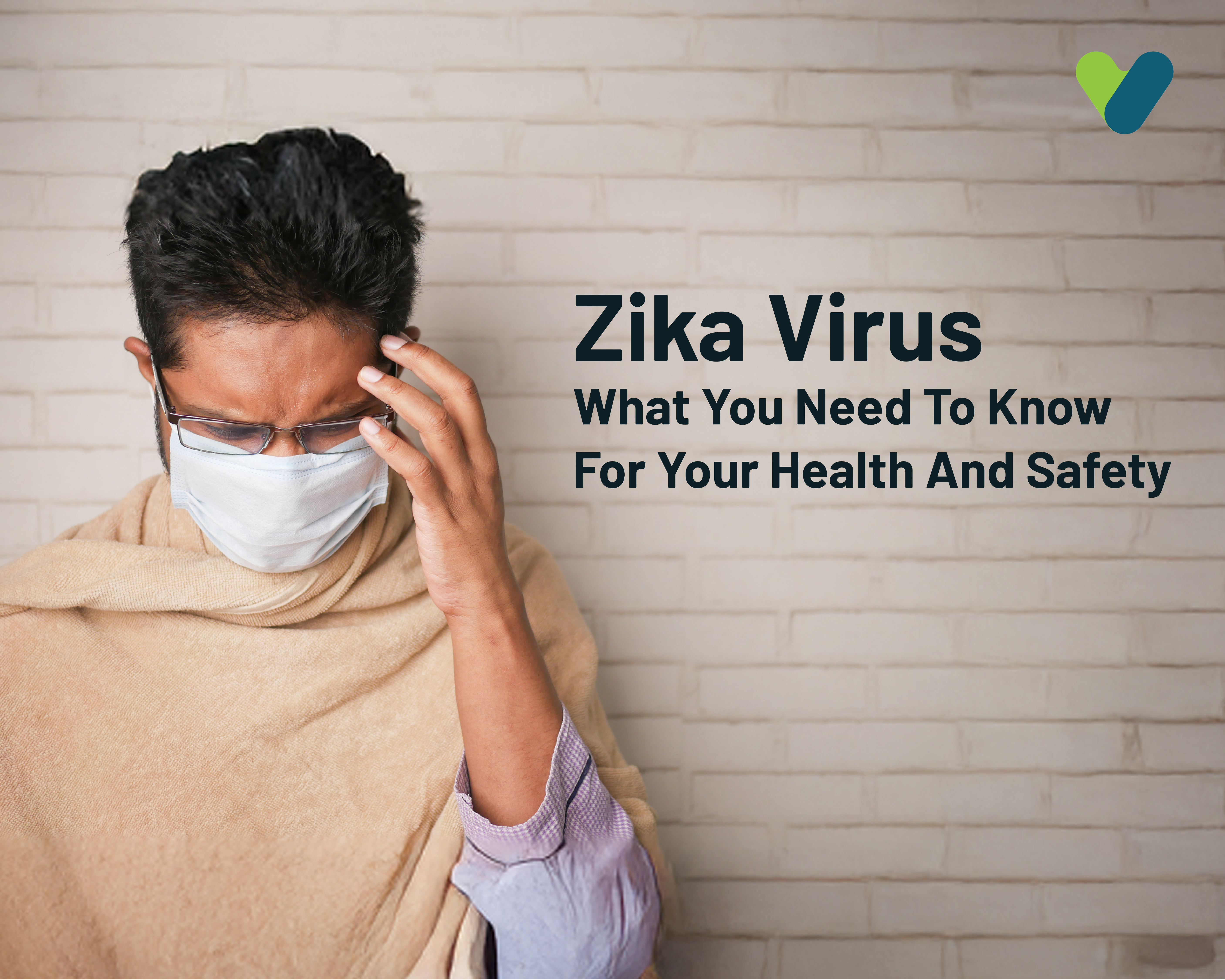Eliza is a 30-year-old woman who traveled to Pune in India for work. After being there for some time, she developed mild fever, joint pain, and rashes. Eliza had earlier passed these symptoms off as fatigue from travel. When this condition did not improve, Eliza sought advice from a physician in that area who suspected a viral infection and advised her to conduct further tests. She was, however, diagnosed with the Zika virus, a mosquito-borne viral disease that has resurfaced in recent months in various parts of India, one of them being Pune. The case underlines the need to understand Zika, its transmission, symptoms, diagnosis, treatment, and prevention.
What is the Zika Virus?
Zika virus is a mosquito-borne virus that was initially detected in Uganda in 1947. The virus belongs to the family Flavivirus and is well transmitted to humans via a bite from infected Aedes mosquitoes, mainly Aedes aegypti and Aedes albopictus. Since its discovery, the virus has been attributed to numerous outbreaks worldwide, especially in tropical and subtropical regions. A recent outbreak of this virus in Pune, India has brought the virus into the news, as this virus has a health implication regarding severe birth defects among pregnant women.How Does Zika Virus Spread? How it is Transmitted?
The Zika virus spreads primarily through the bite of an infected mosquito. However, other modes of transmission include:- From Mother to Fetus: An infected pregnant woman may transmit the virus to her baby, who may then develop birth defects such as microcephaly.
- Sexual Transmission: Sexual intercourse with a person infected with the virus may lead to its transmission.
What are the Symptoms of Zika Virus infection?
Most individuals infected with the Zika virus will have no symptoms at all. Symptoms are typically mild and can include fever, rash, conjunctivitis (red eyes), muscle and joint pain, and headache. Symptoms develop 2-7 days after being bitten by an infected mosquito. In some cases, the infection may result in Guillain-Barré syndrome, a rare neurological disorder that can cause muscle weakness and paralysis. Also Read : Malaria: Treatment and PreventionZika Virus Infection: What are the precautions and prevention?
Some of the precautions and prevention methods to minimize the chances of Zika virus infection include:- Avoid Mosquito Bites: Use insect repellents that have DEET wear long-sleeved clothes sleep under mosquito nets, especially where infection rates are high.
- Remove Standing Water: Mosquitoes breed in stagnant water. To avoid the breeding of mosquitoes, flower pots, bird baths, and buckets containing water need to be emptied regularly.
- Travel Advisories: Pregnant women or those who intend to become pregnant, while pregnancy is a risk, should avoid traveling into areas where Zika outbreaks occur.
How is Zika Virus infection Diagnosed?
The diagnosis of Zika virus infection at this time is by clinical judgment, physical examination, and importantly, laboratory confirmation. These include:- Serology Tests: It detects antibodies, notably IgM against the Zika virus.
- Molecular Tests: The presence of Zika virus RNA may be detected in blood, urine, and other body fluids.
How is Zika Virus infection Treated?
There is no specific treatment or vaccine currently available for Zika virus infection. Treatment involves symptomatic management:- Rest and Hydration: Plenty of rest and hydration are recommended to avoid dehydration.
- Pain Relievers: Over-the-counter pain relievers like acetaminophen can help reduce fever as well as alleviate pain.
- Avoid NSAIDs: Nonsteroidal anti-inflammatory drugs are better avoided until dengue fever has been excluded because of an increased bleeding tendency.
Conclusion
The recent outbreak of Zika virus infection in Pune has brought vigilance and awareness into focus. Knowing the modes of transmission and the symptoms, and taking precautions will safeguard people from infections. Public health initiatives must continue a good job in efforts towards mosquito control and promoting prevention measures among the public. A case like that of Eliza reminds one of the need for knowledge and preparedness about all emerging health issues. Disclaimer: The content provided in this article is intended solely for educational purposes and should not be considered a replacement for professional medical treatment. Given the distinct needs of each individual, it is advisable for the reader to seek guidance from their healthcare provider to assess the relevance of the information to their specific circumstances.References:
- Zika virus. World Health Organization[Internet]. https://www.who.int/health-topics/zika-virus-disease. Accessed Aug. 28, 2024.
- Fact sheet on Zika Virus Disease. Integrated Disease Surveillance Programme, National Centre for Disease Control, Govt. Of India [Internet]. https://idsp.mohfw.gov.in/WriteReadData/l892s/fact_sheet_zika.pdf. Accessed Aug. 25, 2024.
- Zika virus. National Health Service[Internet]. https://www.nhs.uk/conditions/zika/. Accessed Aug. 30, 2024.
- Zika virus. National Institute of Allergy and Infectious Diseases [Internet]. https://www.niaid.nih.gov/diseases-conditions/zika-virus. Accessed Aug. 26, 2024.


